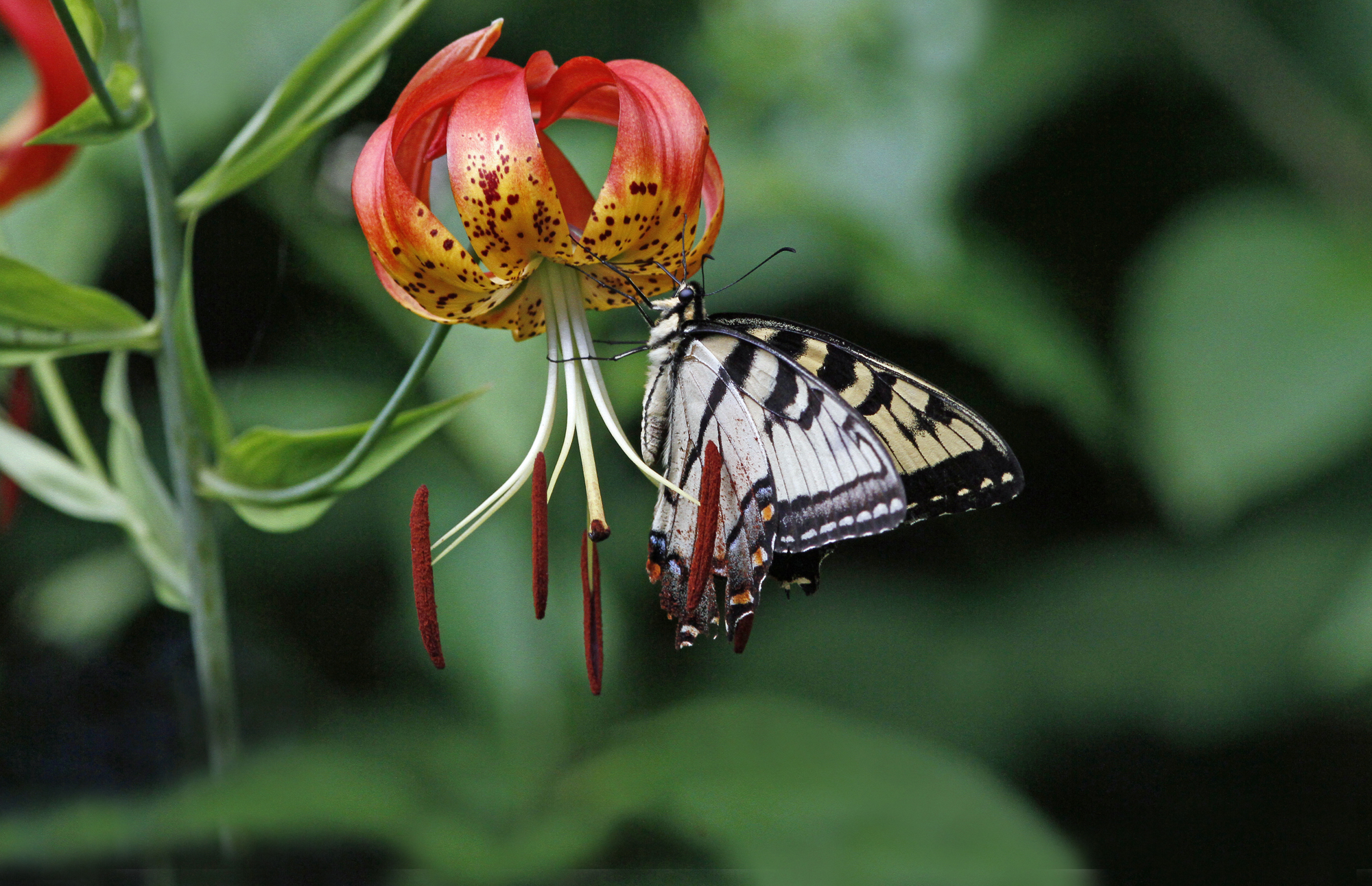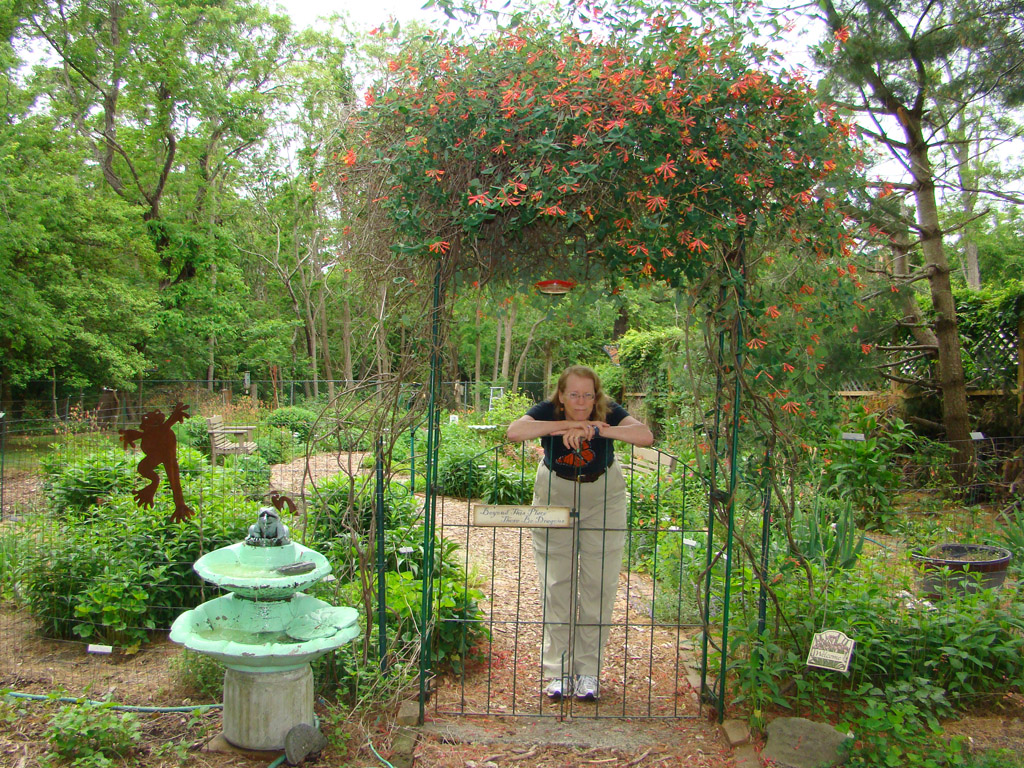The “Tours of Private Butterfly Gardens” are fast approaching: Friday (July 16), Saturday (July 17), and Sunday (July 18). My garden is on the “North Tour” on Sunday, but all the gardens are stunning and offer great learning opportunities, plus lots of fun wildlife watching.
The tours are a great way to get ideas for your own garden and to see first hand various garden designs, plant combinations, native plants that are lovely, nectar plants, caterpillar plants, great shrub ideas, garden accents and features like misters, dragonfly ponds, arbors, and of course LOTS of wildlife, including BUTTERFLIES and Hummingbird Moths!
Imagine getting a glimpse into private backyard wildlife gardens, interacting with the artists who created them, having each and every garden and wildlife question answered, and enjoying it with a group of fellow wildlife gardeners.
 Please consider joining me for one or all of these tours. Details about the tours & how to sign up for these July Tours or the August or September Tours are at the end of this post.
Please consider joining me for one or all of these tours. Details about the tours & how to sign up for these July Tours or the August or September Tours are at the end of this post.
Just today a Monarch is sailing all around our garden laying eggs on the dozens of Milkweed plants, plus nectaring on Common Milkweed’s fragrant blossoms. Red Admirals have been abundant this year and the many eggs laid in mid-May on my Stinging Nettle have resulted in the next generation of Red Admirals just emerging now.
My ponds, now free of duckweed (which snuck in on a “gift plant”) after a labor-intensive “clean out the ponds” project, are busy places with lots of dragonflies laying eggs, and just today we spotted dozens of frog or toad tadpoles (in mid-June Gray Tree Frogs and Fowler’s Toads were both courting at our ponds).
Hummingbirds are zipping around and frequenting the 2nd bloom of Coral Honeysuckle, just-opening Cannas, salvias, and lots of other goodies & insects.
Be sure to mark your calendars with the dates below & plan to join me on one, several, or all of the 2010 “Tours of Private Wildlife Gardens” that I will again be leading for NJ Audubon’s Nature Center of Cape May.
 Tours of Private BUTTERFLY Gardens
Tours of Private BUTTERFLY Gardens
- Friday, July 16: SOUTH “Cape Island” – 10:00 a.m. to 3:30 p.m.
- Saturday, July 17: MID-COUNTY “North Cape May to Rio Grande” – 10:00 a.m. to 3:30 p.m.
- Sunday, July 18: NORTH “Goshen to Dennisville” – 10:00 a.m. to 3:30 p.m.
More butterfly and hummingbird gardens are tucked into Cape May County than probably anywhere else in the country. Mid-July is the time of peak butterfly diversity and numbers. Gardens look completely different from one month to the next (so seriously consider all 9 tours). Learn the magic combination of native nectar plants and caterpillar plants that makes a garden especially attractive to butterflies. Design ideas and new wildlife plants will be showcased while tour participants are entertained by a blizzard of butterflies and hummingbirds.
Tours of Private HUMMINGBIRD Gardens
- Friday, August 13: NORTH “Goshen to Dennisville” — 10:00 a.m. to 3:30 p.m.
- Saturday, August 14: SOUTH “Cape Island” — 10:00 a.m. to 3:30 p.m.
- Sunday, August 15: MID-COUNTY “North Cape May to Rio Grande” — 10:00 a.m. to 3:30 p.m.
At the peak of Ruby-throated Hummingbird migration savor an array of diverse gardens that have hosted nesting hummingbirds since May. Learn the magic combination of native nectar plants, healthy insect populations, and adequate cover that makes a garden especially attractive to hummingbirds.
Tours of Private MONARCH Gardens
- Friday, Sept. 10: MID-COUNTY “North Cape May to Rio Grande” — 10:00 a.m. to 3:30 p.m.
- Saturday, Sept. 11: NORTH “Goshen to Dennisville” — 10:00 a.m. to 3:30 p.m.
- Sunday, Sept. 12: SOUTH “Cape Island” — 10:00 a.m. to 3:30 p.m.
Cape May County is world famous for its concentration of migrating Monarchs. At the peak of their fall migration savor an array of diverse gardens that have hosted Monarchs since May. Learn the magic combination of native nectar plants and caterpillar plants (five or more different kinds of milkweed) that makes a garden especially attractive to Monarchs and many other butterflies. Expect to see Monarch eggs, caterpillars, and maybe even a chrysalis.
TOUR DETAILS AND PRICING
Gardening naturalist and author, Pat Sutton, leads these tours, which include her own garden in Goshen(North tour). Bring lunch since the group will eat in one of the gardens.
Before the tour download, print, & bring along (for ease of note taking) NJ Audubon’s article, “How to Create a Butterfly andHummingbird Garden,” and the “Recommended Plantings to Attract Hummingbirds, Butterflies, and Moths,” by Patricia Sutton.
Limit: 25 per tour. Cost per tour: $30 members, $40 nonmembers. (Join three tours at a discounted rate of $75 members, $100 nonmembers.)
These tours require preregistration with payment. You may register by phone at 609.898.8848 with a credit card (noting which tours and full names of registrants) at the Nature Center of Cape May.

